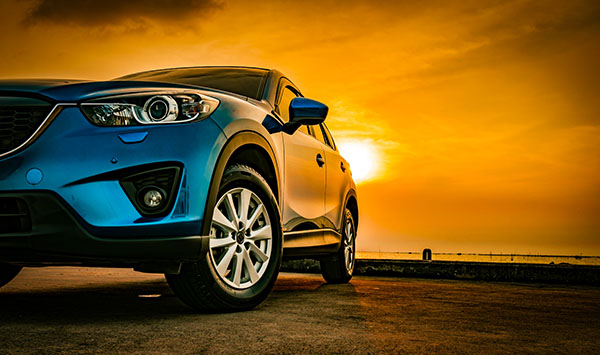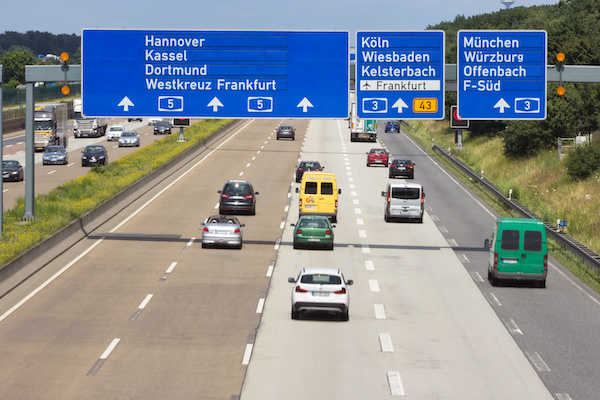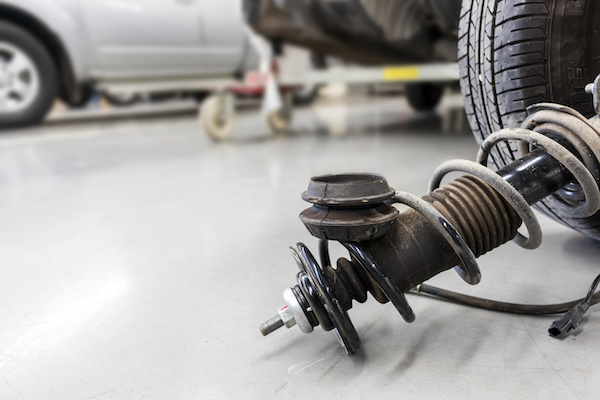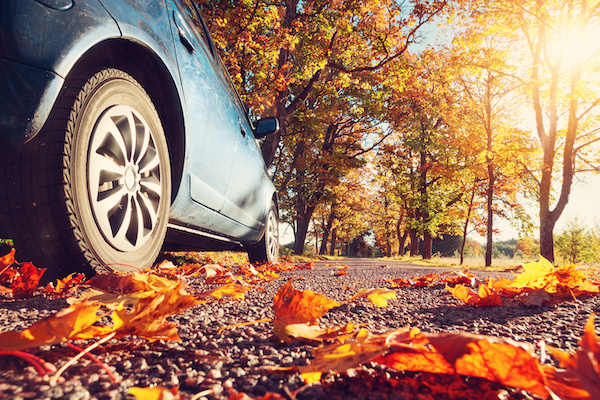Posted on 7/28/2023

SUVs (Sport Utility Vehicles) have gained immense popularity due to their versatility, spaciousness, and off-road capabilities. However, one aspect that SUV owners need to be mindful of is the potential for shocks and suspension damage. The unique design and characteristics of SUVs make them more susceptible to certain types of road-related wear and tear. In this blog, we will explore the reasons why SUVs are prone to shocks and general suspension damage, shedding light on the importance of maintenance and proper driving practices to preserve the longevity and performance of your SUV's suspension system. Increased Weight and Higher Center of Gravity SUVs are typically larger and heavier than sedans or compact cars. The added weight, combined with their higher center of gravity, can put more strain on the shocks and suspension components. The suspension system is responsible for absorbing road impacts and maintaining stability, but the increased mass and height of SUVs crea ... read more
Posted on 6/29/2023

The German Autobahn has long fascinated car enthusiasts worldwide. It is renowned for its reputation of being a highway where drivers can seemingly push the limits and drive as fast as they desire. However, there are some misconceptions and nuances surrounding this iconic roadway. Let's take a look at the German Autobahn, its unique characteristics, and the truth about driving as fast as you want. What is the German Autobahn? The German Autobahn is an extensive network of highways that spans across Germany, providing efficient transportation and connectivity. It boasts well-maintained road infrastructure, excellent signage, and advanced traffic management systems. The Autobahn has contributed significantly to Germany's economic growth and is celebrated for its efficiency and safety measures. Can You Drive As Fast As You Want? Contrary to popular belief, not all sections of the German Autobahn have unrestr ... read more
Posted on 5/30/2023

Spring is finally here, and it's now more important than ever to prepare your car for the warmer weather. The cold winter months can be rough on your vehicle, and it's important for vehicle owners to perform proper maintenance to ensure optimal performance and prevent potential issues. Keep reading to learn about some key spring car care tips to help you prepare your vehicle for the season. Get Your Tires Inspected Winter can be harsh on your vehicle's tires, and it's essential to inspect them for any signs of wear and tear. We advise you to monitor your tire pressure and tread depth and replace worn-out tires if necessary. Properly inflated tires can help improve fuel efficiency and provide a smoother ride. Check Your Fluid Levels Winter can also cause fluids to become thicker, leading to potential issues with your car's engine and other components. It's important to check your oil, coolant, brake fluid ... read more
Posted on 10/26/2022

Shock absorbers are an indispensable part of your SUV or car in Newark, NJ. Shocks ensure your vehicle makes proper contact with the road at all times. Additionally, they play a part in the movement of the springs and minimize road impacts. They are a crucial part of the suspension system. Shock absorbers are almost like hydraulic pumps that absorb a ton of impact. As a result, you don’t feel any vibrations or unforgiving bumps on the road. Like many other car parts, shock absorbers do become less effective over time. However, it is difficult to give a timeframe or number of miles because every car is different. They last between 4-10 years, depending on how well they are made and the kind of roads you drive on. 3 Signs That Indicate You Need New Shock Absorbers Most of the time, people rely on signs or symptoms to determine when it is time to service their shocks. Below are some of the key warning signs you should look for: Poor or Slow Brakes: Worn shock absorb ... read more
Posted on 9/30/2022

Fall means color-changing leaves, football season, pumpkin spice lattes, and of course the change in driving conditions. With the weather cooling down in Newark, NJ, we may soon experience more rain and even freezing conditions. Before you embark on your fall festivities, it is important to keep safe transportation in mind. Below are our top 3 auto maintenance recommendations for the fall. Change Your Wiper Blades. It’s easy to take your wiper blades for granted until you actually need them. If it has been a year or longer since you changed them, it is a good time to renew them this fall. The weather can be unpredictable in the autumn, so make sure you have effective wipers to clear your windscreen. Plus, the rubber or silicone on the blades probably wore down from the heat this summer. If your windshield wiper blades are noisy or leaving streaks, it is time to swap them out. Monitor Your Fluids. As temperatures decrease, make sure all your vehicle fluids are clean and topped ... read more